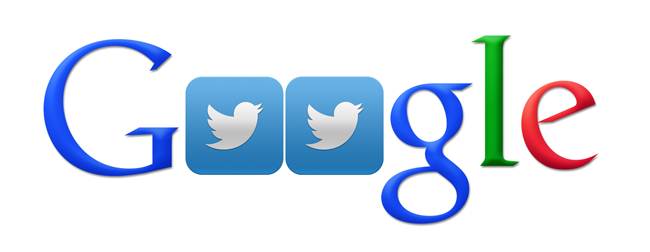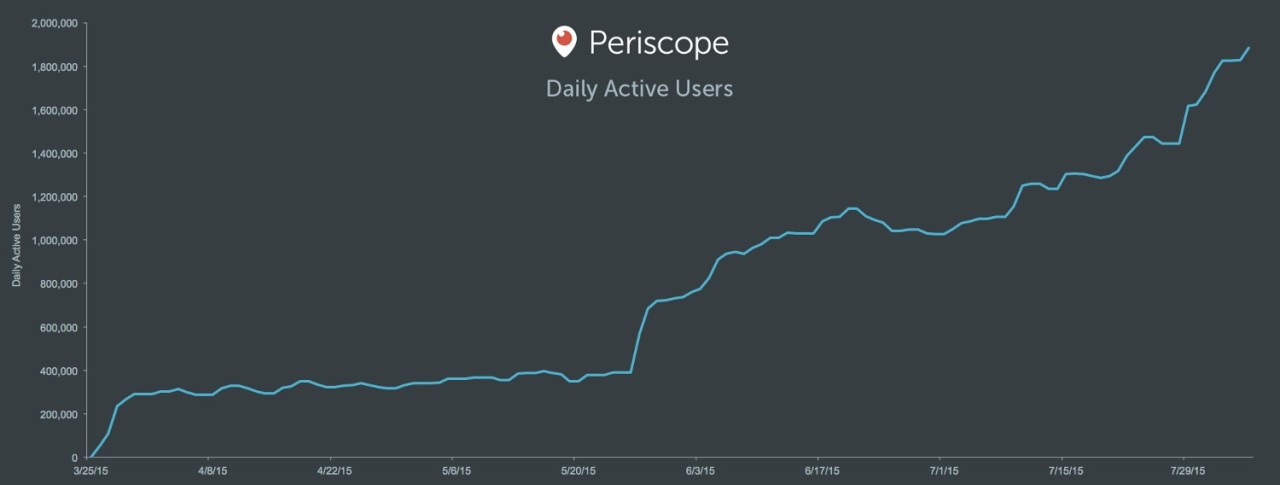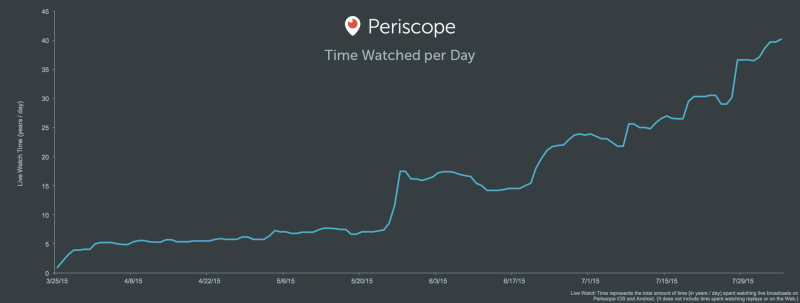Google or Facebook Will Buy Twitter. Soon.
 ##Symbol##GOOGL
##Symbol##GOOGL
Welcome to CMLviz.com
Twitter is on sale. There will be a buyer. Period.
NB: Buying a stock for the sole purpose of a takeover possibility is an awful investment thesis. Please be prudent.
We must start this conversation by noting that Google's CEO and co-founder Larry Page does not have a Twitter account and as little as three weeks ago was quoted as saying he didn't "give a f***" about Twitter." If you're willing to move past that, there is an incredible ride that really gets into the guts of how exactly Google, Facebook and Twitter work. We are left with a gripping, once in a generation technology showdown that may lead to the first trillion dollar company, ever.
According to April research from Goldman Sachs, about 20% of Google's total revenue came from mobile and most of that came from search ads displayed on rival Apple's phones (Source: Business Insider). On the other hand, fully 75% of Facebook's revenue comes from mobile while Twitter realized an astonishing 89%.
Understanding the Landscape
An on-line advertiser has to do at least one of three things to be successful (in no particular order): (1) Have appropriate content, (2) be timely, or (3) have a broad audience. These are the three crown jewels that define the success of Google, Facebook and Twitter. I have numbered them 1, 2 and 3 for convenience.

Google is by far the most successful advertising company ever, generating nearly $55 billion in ad revenue (out of a total of $70 billion firm wide) and that makes it the second most valuable company on planet Earth (by market cap). It's literally the prefect advertising engine. Here's why:
When a user clicks the "search" button on Google, she automatically gets (1) appropriate content (tied to the search phrase), (2) perfect timeliness (search results are immediate) and (3) Google reaches an enormous audience. Game, set and match. Simply the best of the best, ever. But, Google does not have a social presence. Its latest attempt, Google+, fell by the wayside as a total failure... except for one thing (more on that "thing" in a bit).

Facebook (FB)
While Facebook (FB) doesn't do

So where does that leave Twitter? The firm does not have as much information on its users as either Facebook or a Google search, so
There are scores of data pointing to Twitter engagement surrounding events whether they be sporting events, political events, geo-political happenings or entertainment events outside of sports. Like, there were 25.1M total tweets and 9.1B impressions globally surrounding the NCAA tournament last year (Source: Twitter to me in an e-mail). Twitter simply works with real-time delivery. The addition of Periscope (real-time social video streaming) is so obvious a fit that Twitter bought Periscope before Periscope even launched its product. Here are two charts pointing to the rapid growth in Periscope.


Why Google Buys Twitter
Google has already implemented Tweets into both mobile and desktop search results. An acquisition and full integration by Google would give Twitter (1) content appropriateness and (3) broad audience. Yeah, Google can suddenly and abruptly give Twitter the two components Twitter is missing to be a successful advertiser. On the other hand, When Google acquires Twitter, Google will create its first true avenue into social content and then further build on its competitive advantage over Facebook, which is timeliness.
What's that you say? Twitter isn't big enough for a social media presence? While Facebook is certainly larger than Twitter, let us not forget that Twitter is still enormous at over 315 million monthly average users which send 500 million tweets every day. That's more than a presence in social media, it's a win. Ah, but there's more...
While Google+ was a total failure, it turns out that the platform acted as a wonderful cloud service for storing photos. In fact, Google is re-launching that part of Google+ and calling it, appropriately, "Google Photos." The problem with Google Photos is that it isn't particularly social, unlike Instagram. But, what if every Twitter account automatically attached to Google Photos, and every image shared on Twitter from each account went into the Google Photos account? Friends, that's at least a shot at competing with Instagram. That's social photos, with an edge. It's social photos with timeliness shared during events of every sort from sporting to geopolitical, building on the Twitter competitive advantage and equally important, building against Facebook's weakness. But there's more...
I remind all readers that a report just like this one is available for any company for free on CMLviz.com. No e-mail. No login. Free. Forever. Period.
Google dominates online video. In fact, there are 72 hours of video uploaded to YouTube every minute. In the earnings report on 7-16-2015, Google disclosed that watch time for YouTube rose 60% in the second quarter and the video service had more viewers aged 18-49 on mobile alone than any U.S. cable network. Add Periscope and its ridiculous growth numbers, and Google takes online video to social online video, instantly. And it's now timely, yet again addressing Facebook's weakness and compounding Google's advantage. But there's more...
Google created (and owns) the web browser Chrome. Built into Chrome is an instant messaging app called "Hangouts." What if every Twitter account also had Hangouts attached to it? Now Google has a social instant messaging service that competes with Facebook Messenger with an added edge of again... timeliness. But there's more...
Remember that only 20% of Google's advertising revenue came from mobile versus Facebook's 75%. It turns out that 89% of Twitter's ad revenue comes from mobile. Yes, Twitter is tiny compared to Facebook, but the company gives Google a powerful facility that lives and breathes on mobile. A facility that grew revenue more than 80% year-over-year. But there's more...
At the Google I/O 2015 developer conference we learned that Google is working on Android Pay (a competitor to Apple Pay). We also know that Twitter is either working on, acquiring or considering implementing a buy button into the app. Android Pay sounds quite tasty when Twitter is wrapped around it as a market exchange. So does Google Wallet, for that matter. But there's more...
Google announced a restructuring of its company. In fact, it will soon be called Alphabet. Alphabet will allow several different companies (and CEOs) to function underneath the umbrella, with Google of course as the central focus. Here's an image to help illustrate what Alphabet does.

This new corporate structure allows for the inclusion of a company like Twitter, without dismantling it, or even wiping out all of its management. Don't get me wrong, the second largest company in the world didn't restructure because of Twitter, no way. But the restructuring did open up possibilities in more focused way than ever before. But there's more...
Twitter is suffocating on lack of user growth. Or is it?... Let us now recall that 8 million new users reported in Twitter's last earnings call that were "non-logged in" users (SMS in this case). We have circumstantial if not empirical evidence that non-logged in users can and will participate on the Twitter platform. And Project Lightning hasn't even been released yet. A Google search doesn't require a log in, and that means the Twitter results from a search are now substantially more accessible to people who are either not on Twitter.
Interestingly, it's possible, if not likely, that non-logged in user growth could expand rapidly once Project Lighting and Google Search are fully released and the delineation between these two types of users could become less important. But there's still more...
This is a business (dollars and cents) decision as well and what do you know, Twitter's stock price has collapsed of late and is in fact right at its IPO price. Twitter is more affordable than ever before, and Google has enough cash on hand to buy Twitter four times over (of course we must consider a buyout premium).
Summary
When Google acquires Twitter it instantly competes with Facebook in the social media realm, the social photo realm, the social video realm and the social messaging realm. All segments that Google cannot successfully compete in now. Further, it plants a potentially immoveable stake in the ground with respect to timeliness of content -- Facebook's great weakness. The combination also rips at the heart of Facebook's attempt to gain ground in the real-time event realm (remember which firm sponsored the first GOP debate?). Further yet, the combination gives Google a platform that actually drives a greater percentage of its revenue from mobile than Facebook. The combination also pushes Google's pay service into a living and breathing market place. But there's more...
When Google takes over Twitter it will expand upon Larry Paige's view of Alphabet as a far reaching expander of human knowledge. After all, Google search in its simplest terms, is the collection of all of human thought instantaneously. Now it will be that in real-time with events living in a social vernacular. But there's a little more...
The final combination, after all of the synergies are completed, will leave Google as an unmatched power in all things content, timely and advertising driven. And no, there is no more. Period.
Or is there?... If Larry Page is simply allergic to the idea of owning Twitter, as it appears, then take the entire story above and fill in the possibilites for Facebook to conquer all things social, mobile and real-time (timeliness). Facebook will suddenly become the King Maker and it will overtake Google in market cap.
Either way, Twitter is on sale. There will be a buyer. Period.


